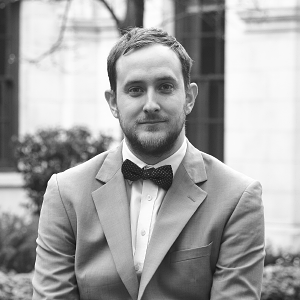SPOILERS—Don’t read this post if you haven’t seen the latest Avengers film!
Before Chadwick Boseman, before Chris Hemsworth – before even Robert Downey Junior, comic books and superheroes were the exclusive domain of nerds. In these dark days, the Marvel Cinematic Universe (MCU) is everywhere, with millions of people now in a position to argue about whether the Hulk could beat Thor in a fight – even if the nerds still rule supreme.
The MCU has reached its climax with 2018’s Infinity War. In it, the villain of the piece, Thanos, is attempting to collect all six infinity stones in order to destroy half of all life in the Universe, in order to bring balance. At the end of the movie – and again, spoiler alert – Thanos has won, and half of the universe are dead. As fans of randomised trials, his allocation mechanism – who lives, who dies – is particularly interesting to us here at the Behavioural Insights Team.
Now, Thanos’ actions are based on the questionable doctrine of Malthus – that overpopulation is a problem that will require extinction at a Universal scale. To prevent this, he wants to kill half the population, but to do so in a fair way, killing people at random.
Obviously, we applaud the use of random assignment, even if we find the intervention to be a little extreme in this case. At the risk of sticking our heads in the Titan’s mouth, however, we do think he might have considered a different strategy.
At the end of the movie, the original Avengers all remain alive, while almost all of the other heroes are dead. This looks like a case of randomisation failure. Using 538’s calculations of the relative strength of different heroes, we see evidence of this – as shown in the figure below, the probability of winning a fight against another hero is 45% higher for the survivors than those who perish (p=0.2).*
The survivorship rate of more powerful heroes might be troubling for whatever outcome it is that Thanos’ is looking to measure. Life, as they say, finds a way – and leaving so many powerful heroes alive, especially ones with a pre-existing team dynamic – seems like it could be ruinous to him in Infinity War Part II (due for release next year).
Taking this randomisation at face value, it seems like the most likely explanation is that Thanos simply got unlucky with his randomisation, which can happen in any sample with a small number of outliers. To find out just how unlucky he was, we ran 1000 simulations of random assignment of the heroes that are still alive before Thanos snaps his fingers (and for whom assignment is observed), into two groups with equal probability, and then measure the proportion of the original Avengers who remain alive in each – which is shown in the plot blow – we find about a 1.6% chance of all Avengers surviving.
So, Thanos got pretty unlucky to have them all alive – something he could have avoided if he’d stratified on whether individuals were the member of a small but pretty influential group.** All this goes to show – infinite power to command time and space is nothing without a good trial design.
*The list of heroes analysed by 538 isn’t exhaustive, and only contains 14 heroes. One important omission from an Infinity War standpoint is Dr Stephen Strange, a master of the mystic arts.
**Skeptics of this argument on twitter suggest that we’re fixating on a salient but statistically irrelevant group. However, given that the Avengers foiled Thanos’ attempts to recover the infinity stones, in so doing costing him one that he already possessed, we argue that their importance could have been forecast ex ante. Plus, they have a Hulk.



